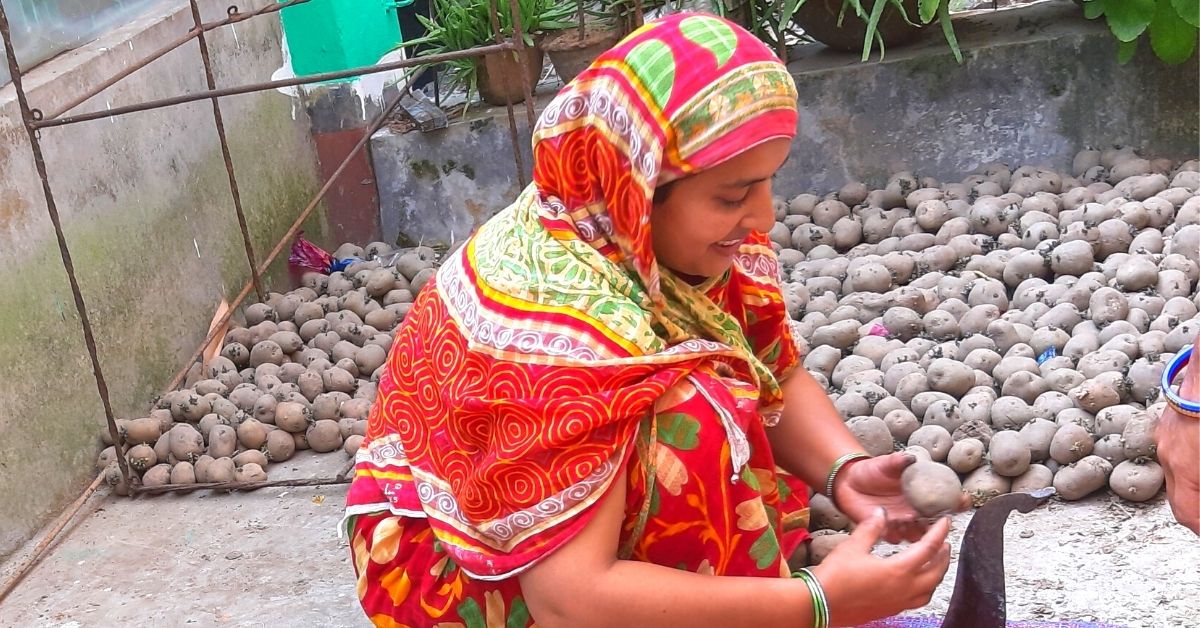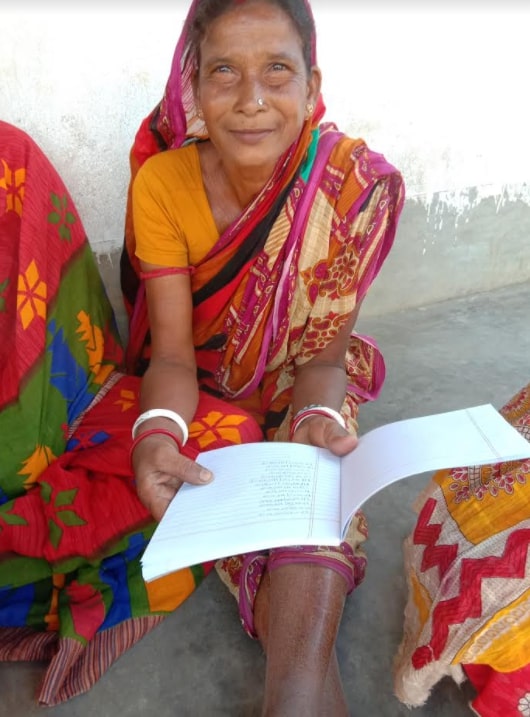New Toilet to Daughter’s Education: How 2 Women Used Potato Farming to Become Independent
After being debt-ridden for years, these two middle-aged women from Hooghly took up farming and are now inspiring other women in the rural areas.

After spending her entire life as someone’s daughter and then a wife, Shamima Begum from West Bengal’s Molaypur village is now carving her own identity as a farmer.
She recently sold 12 tonnes of potatoes to PepsiCo India, and with the revenue generated, she paid off her husband’s debt. She also purchased household essentials like the fridge and cooking gas and kept aside some money for her daughter’s medical career.
Some 200 kilometres away from Shamima is another woman farmer, Malati, who has a similar story. A resident of Harishchandrapur, Malati has been helping her husband in farming but it was only last year when she independently grew potatoes.
She, too, directed her profits towards fulfilling her needs — a toilet inside the house and a tubewell on the farm to ease the irrigation process.
Both of them decided to start their second innings as individual entities despite being fully aware of the deplorable conditions of growing potatoes in their region.
West Bengal is one of the largest producers of potatoes in India with sizable cultivation in Hooghly. However, the region is plagued with price fluctuations, untimely rains and high agricultural input costs. Due to this, farmers are often subjected to extensive losses.
However, the mutual desire to become financially independent pushed them to grab a common opportunity that came their way in 2019.
PepsiCo India partnered with the US Agency for International Development (USAID) last year under the Women’s Global Development and Prosperity (W-GDP) initiative to empower women in agriculture and help build a more sustainable food system. The programme imparts various lessons like crop rotation, pest control management, financial literacy and so on. So far, they have provided potato production training to 500 women.
“I was nervous about the yield-related failures and debts that I may have to incur, but this was a risk I was willing to take for the well-being of my family,” Shamima tells The Better India.
Shamima Sheds Her Farming Fears
A high school graduate, Shamima was married off as soon as she turned 18. She effortlessly emulated the role of a homemaker and occasionally started helping her husband with basic farming activities like removing weeds and warding off pests.
While she liked helping her husband, Shamima never actively took an interest in farming. She says that she didn’t have the calibre to deal heavy crop losses or the physical stamina to sow seeds and till the land. She was happy taking care of her two children and the house.
Every year Shamima’s family takes a loan of Rs 3 lakhs to grow potatoes and after the harvest, they repay it. While it may sound like a straightforward transaction, it is far from it.
Hailstorms are very common in the region just before the harvest season, it can destroy all the vegetation which is spread across their 4-acre land or the quality is compromised due to heavy use of fertilizers to save the vegetation. In both cases, they suffer.
This leads to selling potatoes at a very low rate. In 2015, they sold potatoes at Rs 3 per kilo!
Dealing with middlemen or traders to acquire the right price for potatoes is another daunting task that she saw her husband going through.
“The pressure is immense and often my husband falls sick because of this. For each potato, I have seen him bargaining and struggling for days. I never wanted to get into this vicious cycle,” says Shamima.
So what changed?
“My biggest fear was dealing with the middlemen. I am aware that they take the lion’s share of profits but we don’t have much say in the matter. Under this programme, my produce would directly be sold to the giant corporation. Plus they would guide me in terms of seed selection, disease identification and packaging. So, I underwent the training,” shares Shamima.
Post the training programme, she took a loan of Rs 30,000 from the bank and purchased an acre of land on lease.
In the first season in October 2019, Shamima successfully grew 12 tonnes of potatoes which is equivalent to 45 packets, each weighing a kilo.
“After clearing the debt, paying labourers and buying household essentials, I was left with a profit of Rs 14,000. I deposited it in the bank for my daughter, who is currently preparing for NEET,” she adds.
Shamima has shed her fears vis-a-vis farming and today she confidently guides her husband on pest management control.
Gone are the days when Shamima didn’t have a single penny to spend on her children. She now contributes to the household expenses with her earnings and this has instilled confidence in her to increase her production and subsequently the average household income.
Dust and eye allergies are a thing of the past for Shamima Begum from West Bengal’s Molaypur village as a cooking gas has replaced her chulha. She now wears a mask and changes clothes while spraying fertilisers in her newly built farmland.
Malati Builds A Toilet, Installs Tubewell

Unlike Shamima, Malati has a considerable farming experience. The 50-year-old has been actively helping her husband for the last two decades on their 0.8-acre land.
Unsold potatoes have been one of the most recurring problems for the couple. She says, “We strive hard to save each potato but there are not enough traders in our village. Due to lack of knowledge and exposure, we can’t access the larger market.”
Malati has seen good and bad days but her love for farming has not subsided a bit, for she still believes this is a noble profession. This is probably the reason why she decided to undergo the programme at her age despite having back frequent backaches.
She decided to break their uncertain hand-to-mouth lifestyle and grabbed the opportunity to improve her yield and farming techniques. Her husband extended unconditional support and even encouraged her to experiment on a bigger portion of their land.
After the programme, she started farming independently in October 2019. All the harvest was directly sold to PepsiCo India.
With the money earned, she constructed a toilet and installed a tubewell to improve the irrigation process.
At this point, Malati is quick to mention that success did not come easy. In the process, she also lost some crops and felt she should give up. But the reality of going in the fields to defecate and building a new toilet for herself, kept her going.
“The pre-agreed prices of the company helps me decide my monthly investments. Plus, with the newly learnt techniques, I can grow more with fewer agri-inputs,” she says.
The best part about this transformation, according to Malati, is that her activities have inspired other women farmers in the village to take up farming independently. No wonder the sight of women walking in and out of her farm is common.
Traditionally speaking, farming is predominantly considered to be a male-dominated profession, especially because it requires physical stamina. However, the story of these two rural women are breaking stereotypical gender norms with their simple and smart techniques.
This story made me
- 97
- 121
- 89
- 167
Tell Us More
We bring stories straight from the heart of India, to inspire millions and create a wave of impact. Our positive movement is growing bigger everyday, and we would love for you to join it.
Please contribute whatever you can, every little penny helps our team in bringing you more stories that support dreams and spread hope.



















